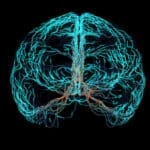The availability of an accelerated TMS protocol has the potential to achieve therapeutic outcomes of TMS in a shorter time. This could be particularly useful by making the benefits of TMS available to people who are unable to attend eight weeks of treatment sessions.In February 2022, we published a blog post that introduced the topic of accelerated TMS. Ongoing research on accelerated TMS has continued to produce insights into the effectiveness and safety of accelerated TMS since that time. Additionally, since the publication of that initial blog post, the FDA has approved the Stanford Accelerated Intelligent Neuromodulation Therapy (SAINT) protocol for accelerated TMS for treatment-resistant depression. In light of these subsequent developments, here is an update on accelerated TMS.
Three Significant, Recent Accelerated TMS Studies
Three recent research studies have added significant information to scientific understanding of accelerated TMS, in terms of its safety and effectiveness, as well as how it may compare to other interventions.
A Comprehensive Review of the Literature on Accelerated TMS
A study by Caulfield, et al., published in the Journal of Psychiatric Research in August 2022 “comprehensively reports the safety/tolerability, efficacy, and stimulation parameters affecting response across disorders.” The authors analyzed studies in the PubMed database that met their definition of accelerated TMS, which meant at least two sessions of TMS per day.
This literature review concluded that accelerated TMS’ safety is comparable to that of once a day TMS. In terms of effectiveness in treating depression, the authors found that “the average response rate was 42.4% and average remission rate was 28.4% (range = 0–90.5% for both).” They also suggested the possibility that how many sessions per day, how long in between sessions, and how many total sessions could be variables affecting how effective accelerated TMS is. Finally, they indicated the need for additional research on, “the safety profile, durability of response, and optimization of parameters in aTMS.”
Comparing Accelerated TMS Protocols
A study by van Rooji, et al. published in Neuropsychopharmacology in May 2023 pointed out the lack of standardization between accelerated TMS protocols and evaluated their effectiveness in treating Major Depressive Disorder. The study examined each accelerated TMS protocol in terms of nine key elements: frequency and inter-stimulation interval treatment parameters; number of treatment days, sessions per day, and pulses per session (all considered part of the topic of cumulative exposure); individualized treatment target and individualized dose; and brain state as shown by context and concurrent treatments. Rather than concluding that a particular accelerated TMS protocol is the most effective, this study focused on the lack of research on the significance of these nine elements and what their ideal parameters are. The authors recommended additional investigation, while also noting that accelerated TMS can involve increased cost, so issues of proponents of accelerated TMS should keep equitable access in mind.
Comparing Accelerated TMS and Esketamine Nasal Spray
Published in July 2023 as a letter to the editor of the journal Brain Stimulation, an analysis by Pettorruso, et al., compared the effectiveness and speed of accelerated TMS and Esketamine nasal spray, two potentially fast-acting interventions for treatment-resistant depression. Conducting a retrospective study of a group of 59 patients who were assigned either treatment based on clinical judgment rather than randomly, the authors’ findings suggested that accelerated TMS worked faster than Esketamine nasal spray, based on response rates at a one-month follow up. The authors cited literature reflecting comparable response rates between the two interventions at a three-month follow up, with Esketamine slightly higher. They also concluded that accelerated TMS showed a lower risk of treatment-related side effects compared to Esketamine nasal spray. The authors noted the lack of manic switches induced by either treatment, which they considered evidence of the safety of both.
Accelerated TMS is both a promising recent advancement in the treatment of depression, and a focus of ongoing research. We will continue to monitor developments in this area as part of our ongoing effort to remain informed about the state of the field on behalf of our patients.
Wondering if an Accelerated TMS Protocol Could Work For You?
There are many options for the treatment of depression, and research is ongoing to develop new approaches. The use of an accelerated TMS protocol and Esketamine nasal spray, which was also mentioned in this article, are among the treatments provided by Mid City TMS for depression, in addition to standard TMS and antidepressant medications. To determine what approach is best for your specific situation, contact Mid City TMS today.













